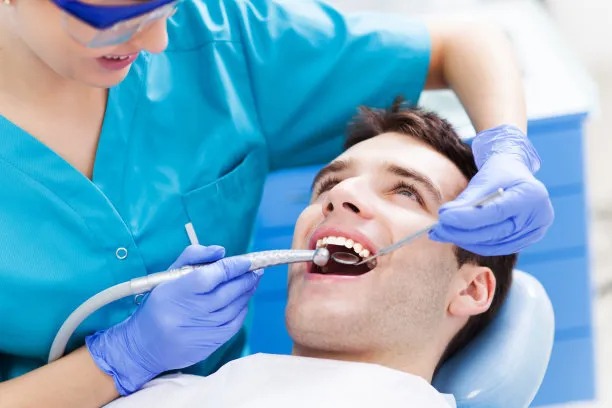The Importance of Extracting a Tooth for Better Oral Health and Overall Wellness in Young Adults
Summary: The extraction of teeth, often perceived as a negative experience, plays a pivotal role in enhancing oral health and overall wellness, particularly in young adults. This article highlights the significance of tooth extraction in terms of preventing dental complications, improving functionality and aesthetics, enhancing orthodontic treatment success, and contributing to emotional well-being. Understanding the multifaceted benefits of this procedure can lead young adults to make informed decisions regarding their oral health. Each of these aspects is explored, demonstrating how tooth extraction can ultimately lead to a healthier life and greater self-confidence.
1. Preventing Dental Complications and Infections

One of the primary reasons for tooth extraction in young adults is the prevention of dental complications. Retained wisdom teeth, for instance, can lead to overcrowding, misalignment, or impaction, resulting in significant pain and discomfort. These complications can introduce a risk of infections, which may impact the surrounding teeth and gum tissue. Early extraction significantly minimizes the potential for such issues and fosters a healthier oral environment.
Moreover, decayed or severely damaged teeth that cannot be repaired with fillings or crowns pose a continual risk of infection. Bacteria can multiply in these areas, resulting in abscesses or systemic health problems if left untreated. Extracting these compromised teeth can not only relieve pain but also lower the risk of serious infections that can affect overall health.
Regular dental exams allow for early detection of such problems. By working closely with dental professionals, young adults can ensure that they are not only addressing existing issues but also preventing potential complications through timely tooth extraction.
2. Enhancing Oral Functionality and Aesthetics
Tooth extraction can significantly improve both the functionality and aesthetics of a person’s smile. For young adults, having a healthy, functional bite is essential for effective chewing and speech. Musculoskeletal issues related to a poor bite can lead to discomfort and long-term pain. Removing problematic teeth makes space for better alignment, ultimately leading to improved oral functionality.
Aesthetically, missing or damaged teeth can impact self-esteem and confidence, especially in social or professional situations. Extracting unattractive teeth allows for the possibility of reconstructive dental work, such as implants or bridges, which can restore a youthful and vibrant smile. The psychological benefits of feeling good about one’s appearance should not be understated, as this can profoundly affect interpersonal interactions and overall self-image.
Hospitality industries and social settings often prioritize a persons appearance, and dental aesthetics play a significant role in social acceptance and confidence. Therefore, extractions related to cosmetic issues can lead to profound improvements in an individuals overall quality of life.
3. Improving Orthodontic Treatment Outcomes
Tooth extraction is frequently utilized in orthodontic treatment plans, especially in younger patients. For those requiring braces or other corrective measures, specific teeth may need to be removed to create sufficient space for adjustments. This strategy not only simplifies the treatment process but also enhances the final outcomes, enabling a better alignment of the teeth.
Orthodontists traditionally advocate for the extraction of certain permanent teeth to prevent overcrowding. Young adults who undergo this process might find that their treatment time is reduced, and the risk of needing future dental work is lowered. This proactive approach leads to a more effective transformation that serves both functional and aesthetic goals.
Moreover, the benefits of improved oral structure extend beyond just teeth. Proper alignment through orthodontic intervention can positively impact jaw health and even affect overall posture. Thus, tooth extraction can be seen as a crucial stepping stone toward long-term dental wellness and comfort.
4. Contributing to Emotional and Psychological Well-being
The link between oral health and emotional well-being cannot be overlooked. Young adults often face societal pressures regarding appearance, and dental issues can contribute to anxiety and self-esteem challenges. By addressing these concerns through tooth extraction when necessary, individuals can experience a renewed sense of confidence and self-worth.
Moreover, inadequately functioning teeth can lead to pain and discomfort that distract individuals from their daily activities, contributing to a cycle of stress and decreased quality of life. Removing troublesome teeth alleviates such pain, allowing for a more enjoyable experience in both personal and professional activities.
In addition, the potential for enhanced social interactions resulting from improved oral aesthetics plays a significant role in overall mental health. As young adults regain confidence through better oral health, they can fully engage in their social lives without the burden or worry of dental appearance or functionality.
Summary:
In summary, the importance of tooth extraction in young adults extends far beyond mere oral health; it encompasses physical functionality, aesthetic appeal, and emotional well-being. By preventing dental complications, improving bite and appearance, enhancing orthodontic treatments, and fostering psychological confidence, tooth extraction proves to be a significant contributor to holistic wellness.
Understanding these multifaceted benefits empowers young adults to prioritize their oral health and seek professional guidance on the necessity of tooth extraction as part of a comprehensive care plan.
This article is compiled by Vickong Dental and the content is for reference only



